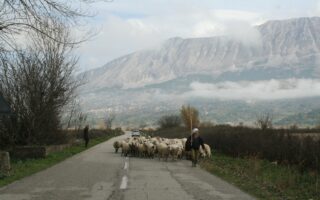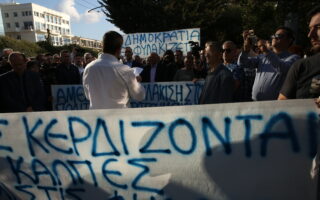Albania census amid concerns of manipulation

Against the backdrop of the ongoing case of the imprisoned mayor-elect of Himare, Fredi Beleri, which is casting a significant shadow over relations between the Greek minority in southern Albania – and by extension Athens – and the government led by Prime Minister Edi Rama, Albania is currently conducting a population census.
The already fraught atmosphere is further inflamed by allegations from the ethnic Greek organization Omonoia. They claim irregularities and manipulations in the census process, intended to depict the Greek minority as dwindling. The epicenter of this new conflict lies, again, in the Himare region, where, according to Omonoia’s statement, census officials who faithfully perform their duties are being terminated.
There have allegedly been two such dismissals in Himare, where an unusually high number of citizens of Greek descent were recorded on the relevant electronic platform. Omonoia contends that Albanian authorities are questioning the authenticity of declarations made by ethnic Greeks in minority villages regarding their permanent residence in their ancestral homes. The announcement highlights that many census workers assert knowledge that contradicts the declarations by heads of families regarding residency.
Omonoia also laments that the census questionnaire lacks inquiries concerning non-Albanian national identity, the Orthodox religion, and the use of Greek as the mother tongue.
Omonoia contends that Albanian authorities are questioning the authenticity of declarations made by ethnic Greeks in minority villages regarding their permanent residence
For the Greek minority in Albania, the census results carry immense political significance in their dealings with the central government. It serves as a potent tool in the allocation of European funds and various development programs. Most importantly, it reflects the current state of their enduring presence in their ancestral lands, with implications for their future.
Nonetheless, there persists a belief among the minority that Albania’s deep state has historically manipulated the decline of the Greek population through various means. At times, Tirana has taken actions to reinforce this, which have been condemned on the international stage.
The Greeks of Albania are of the opinion that this manipulation is being attempted again. The accumulated suspicion magnifies the irregularities in the census process, which are perceived as deliberate manipulations. In truth, the Greek minority in Albania has never fully accepted the way their census was conducted, at least concerning their segment of the population. The censuses conducted in 2001 and 2011 were disputed.
If these reported “irregularities” persist, it is highly likely that, when the census results are announced next June, the minority will challenge them as well.
The Greeks of Albania, much like many Albanians, may have been compelled to emigrate. Nevertheless, they have never severed their ties with the places of their birth, and such tactics cannot sever those bonds.





